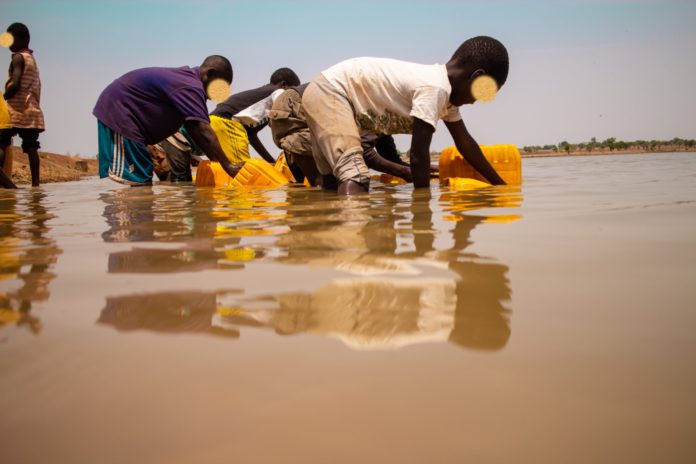A resident of Kukpehi in the Sangnerigu Municipal Assembly in the Northern region cannot afford to buy hand sanitiser which could help him prevent a coronavirus Covid-19 infection.
Regular handwashing is the next basic affordable option, unfortunately, that is also a luxury.
Iddrisu Musa was connected to the Community Water system in Dalung in 2008 but according to residents, water supply to the community is highly irregular.
“They (Community Water) can give you water once in a month, but for three months now there is no water,” Iddrisu complained.
The water readily available to him and over 800 people in the community is sourced from the brownish dirty looking Banka dam which has the potential to cause more diseases.
“Sometimes we get diarrhea and then we get well again, I must say that with the coronavirus we are now in danger,” Iddrisu added.
It is a common sight for children to gather at the Banka dam fetching water in yellow gallons.
They wade into the water with their dirty feet, wash their hands in the same water and then scoop it to drink without a second thought of infections. In fact, that is the water they have been used to for greater part of their lives and continue to use.
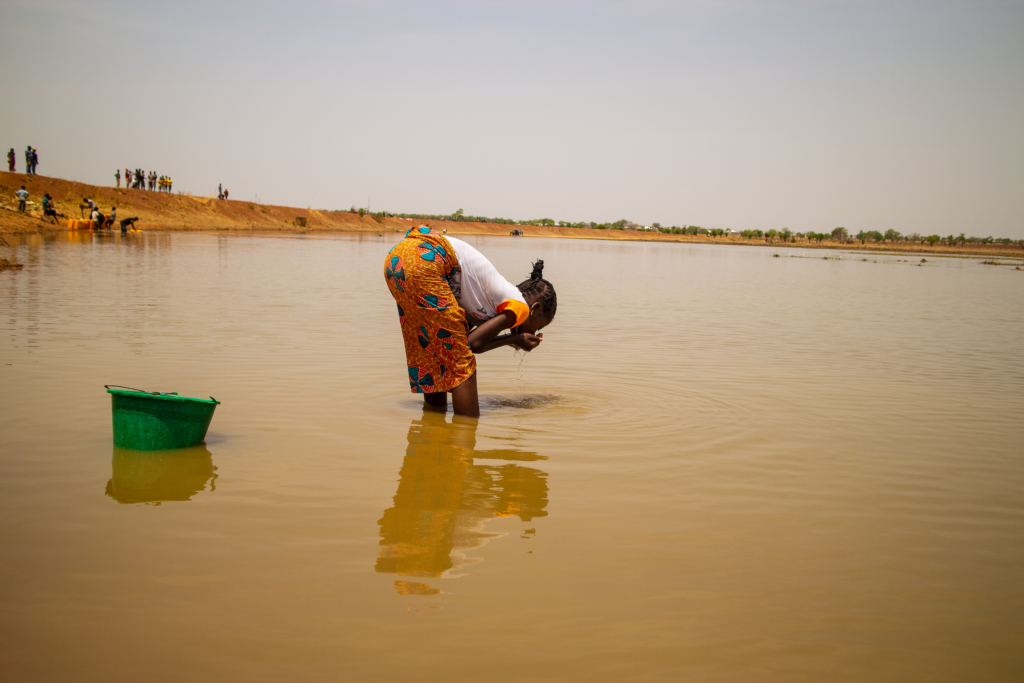
Abduali a nine-year-old boy confirms he suffers from diarrhea occasionally. “Our teacher has been telling us to wash our hands often and also drink clean water.
“At home my mother boils the water, but when I come to the dam I drink with my friends without boiling because there is no bowl or fire here”.
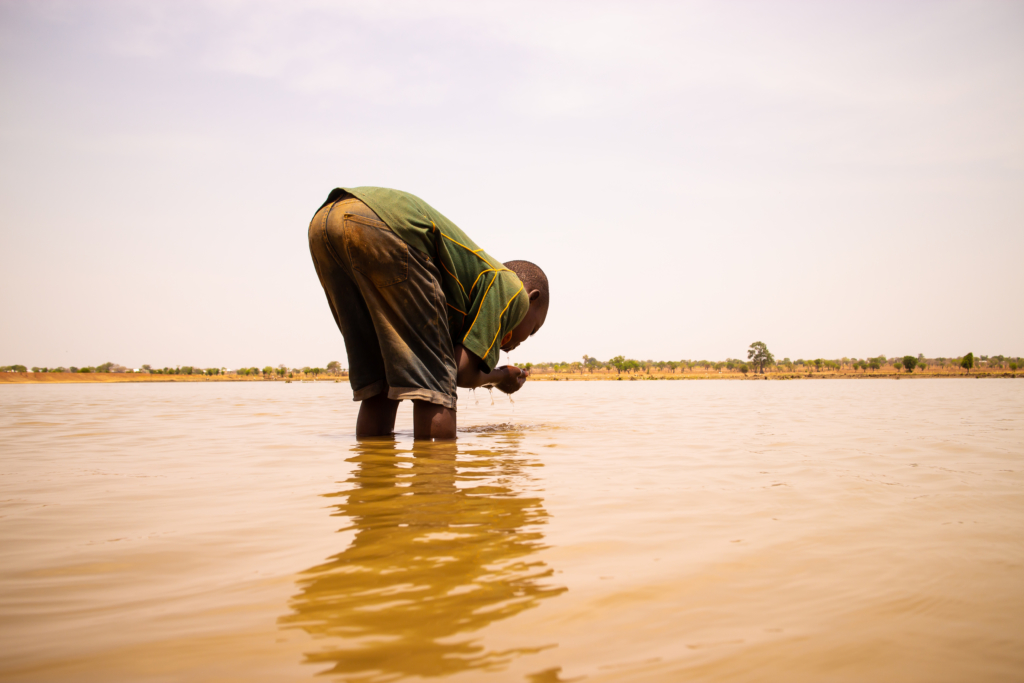
He rides a tricycle loaded with about 20 gallons. He is supposed to be in school but because government announced closure of schools as a measure to prevent potential outbreak of coronavirus, he spends a lot of time fetching water into gallons for sale.
A careful analysis of Ghana Health Service outpatient morbidity reports from 2002 to 2017 shows that diarrhoea is always perched in the top five of diseases.
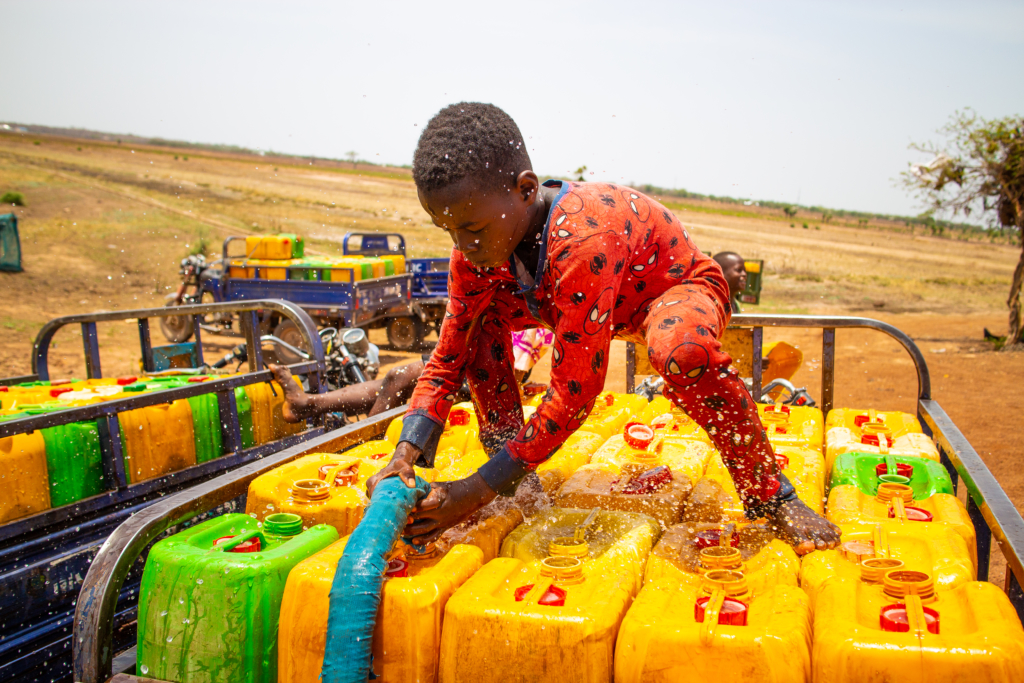
In fact, in Ghana, it accounts for 25% of mortality in children under five years of age, with more than nine million episodes occurring annually.
The Chief of the Kukpehi, Abdulai Zakaria says he is scared that the water they have which makes them sick occasionally would worsen their plight if Coronavirus infection breaks out in his community.
He assembles his elders to discuss ways of getting access to clean water, especially in the time of Coronavirus pandemic.
They decide on embarking on a media engagement so their problems are brought to the attention of government.
“Please tell government to help us get water because the water we have now is not good but we have no choice,” Abdulai Zakaria said.
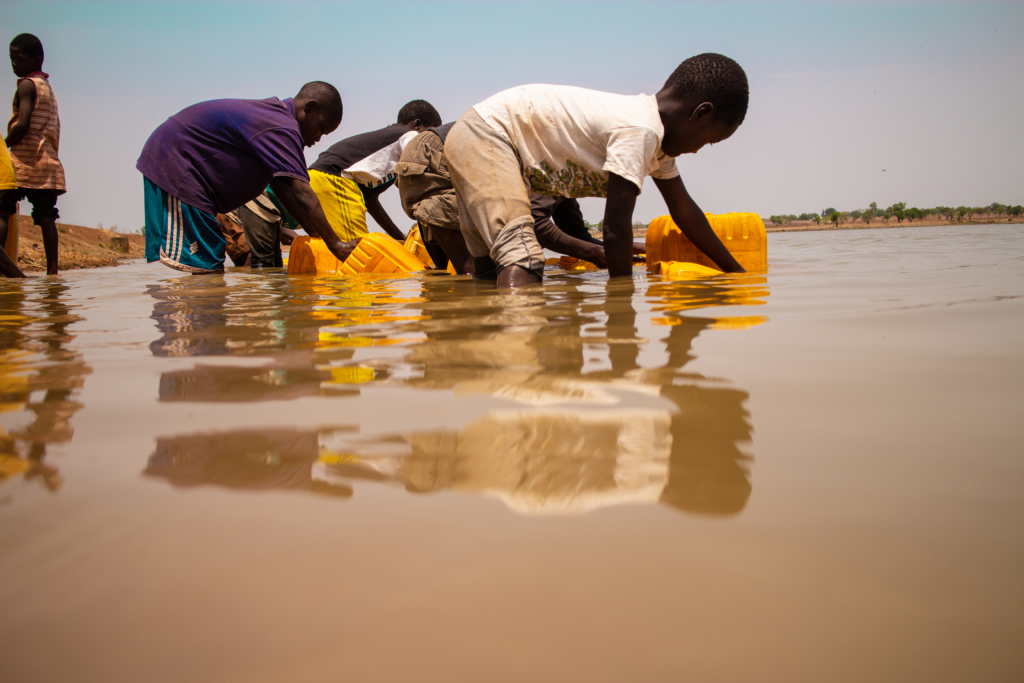
President Nana Akufo-Addo has announced free water for all Ghanaians for the next three months to ensure constant water flow as hand washing under running water is key in the prevention of the Coronavirus.
“Government will absorb the water bills for all Ghanaians for the next three months, i.e. April, May and June. All water tankers, publicly and privately-owned, are also going to be mobilised to ensure the supply of water to all vulnerable communities,” President Akufo-Addo stated.
But for communities like Kukpehi where water hardly runs through the taps the people are not benefitting from this social intervention policy.
According to World Vision Ghana, Ghana has a lot of work to do to provide potable water to poor and vulnerable communities.
“It is quite problematic that while access to basic drinking water in Greater Accra is 98%, it is only 50% in Northern region (MICS 2017/2018).”
To ensure that vulnerable communities practice good hygiene, Government of Ghana should immediately implement plans to enable access to potable water for all communities, as it is critical for public health and fulfillment of human rights.
Once again, Covid-19 should remind government of the gross inequalities that exist in the provision of water and sanitation services.
It should also remind Vice President Dr Mahamudu Bawumia to fulfill the 2016 campaign promise of providing every village and community with potable water.

